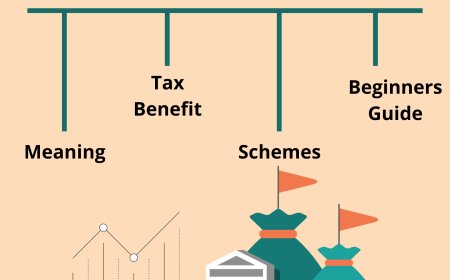Understanding Probationary Employment: What Employers and Employees Need to Know
Discover what probationary employment means, how it works, and its implications under employment law. Get insights to stay compliant and make smart decisions.

Probationary employment is a temporary working arrangement that allows employers to evaluate a new employees performance before offering permanent employment. Typically lasting between 3 to 6 months, this period serves as a trial phase to assess whether the employee is the right fit for the company, both in skills and in workplace culture.
For employees, its an opportunity to prove themselves and potentially secure long-term employment. For employers, it reduces the risk of hiring the wrong candidate.
While it may seem informal, probationary employment is a legally recognized employment status under many jurisdictions employment law and labor law frameworks.
Why Do Companies Use Probationary Employment?
There are several reasons businesses implement probation periods:
-
Performance assessment: Evaluate work quality, attitude, and adaptability.
-
Cultural fit: Determine if the employee aligns with the company values.
-
Risk mitigation: Easier termination processes during the probation period.
-
Cost efficiency: Save long-term benefits for proven employees.
Both parties must understand their rights and obligations during this phase. This is not a free pass to ignore labor law protections.
Key Elements of a Probationary Employment Contract
A clear, written agreement should accompany all probationary roles. Here are the essential elements to include:
-
Duration of probation: Usually 3 to 6 months.
-
Evaluation criteria: Specific performance metrics or behaviors.
-
Termination clause: Notice periods and grounds for dismissal.
-
Conversion clause: Conditions under which probation converts to permanent employment.
Incorporating these elements helps ensure compliance with employment law and minimizes disputes.
Legal Considerations in Probationary Employment
Both employers and employees must navigate the legal landscape carefully. Here's what to watch for:
1. Notice Periods
Even during probation, most labor law systems require some form of notice for termination. It may be shorter than for permanent employees, but it must still be followed.
2. Discrimination Laws
Probationary status does not strip employees of their protection against discrimination, harassment, or unsafe working conditions.
3. Wage and Hour Regulations
Employees on probation are still entitled to minimum wage, overtime pay, and other statutory entitlements under employment law.
4. Union and Collective Bargaining Rights
In some industries, collective agreements may override or supplement standard probation terms.
Evaluating Performance During the Probation Period
A well-structured evaluation process during probationary employment can lead to informed decisions. Employers should:
-
Provide regular feedback (weekly or biweekly)
-
Use a standardized evaluation form
-
Set measurable goals (KPIs)
-
Document all performance reviews
Doing this protects employers legally and gives employees a fair shot at succeeding.
Converting Probationary Employees to Permanent Staff
At the end of the probationary period, there are typically three outcomes:
-
Confirmation: The employee meets expectations and is offered permanent employment.
-
Extension: The employer needs more time to assess, within legally permitted limits.
-
Termination: If expectations are not met, the employer may end the contract.
Be sure to provide formal notice in writing and document the reasoning, especially when terminating or extending the probation.
Risks of Mismanaging Probationary Employment
Failure to manage this period properly can lead to legal and operational risks:
-
Wrongful termination claims
-
Breach of contract disputes
-
Reputational damage
-
Increased turnover and recruitment costs
Understanding labor law helps avoid these pitfalls.
Best Practices for Employers
To stay compliant and build a productive team, employers should:
-
Clearly define probation terms in writing
-
Stay compliant with employment law
-
Provide structured onboarding and feedback
-
Avoid any assumption that probation reduces legal obligations
Remember, treating probationary employees fairly sets the tone for their future performance and loyalty.
Frequently Asked Questions (FAQ)
What is the typical length of probationary employment?
Most probationary employment periods range from 3 to 6 months, depending on the role and company policy. Some industries may extend up to 12 months.
Can an employee be terminated during probation?
Yes, but termination must still comply with local employment law, including notice periods and anti-discrimination protections.
Do probationary employees have the same rights as permanent ones?
Mostly yes. While some benefits may be limited, they are still covered by labor law regarding wages, safe working conditions, and discrimination protections.
Can a probation period be extended?
Yes, but any extension should be agreed upon in writing and must comply with applicable labor law limitations on maximum duration.
Is it mandatory to provide a performance review during probation?
Its not always legally required, but its a best practice. It helps in a fair assessment and strengthens your case if the employment ends.
Probationary Employment and Labor Law by Region
Here's a brief overview of how probationary employment is handled under different employment law systems:
| Region | Standard Length | Key Legal Note |
|---|---|---|
| United States | Up to 6 months | Employment is usually at-will, but discrimination laws apply. |
| United Kingdom | Up to 6 months | Subject to statutory notice and unfair dismissal rights after 2 years. |
| Australia | 3 to 6 months | Probation must comply with the Fair Work Act. |
| Canada | Varies by province | Most provinces require minimum notice even during probation. |
| Philippines | Max 6 months | Requires regular performance evaluations and notice. |
Always consult a legal expert familiar with local labor law before drafting or signing a probationary contract.
Final Thoughts: Is Probationary Employment Right for Your Business?
Probationary employment is a practical tool to find the right talent while minimizing risksbut only when executed properly. Whether you're a small business or a growing enterprise, understanding the nuances of employment law is essential.
Use probation periods to build trust, evaluate fit, and create long-term working relationships. But dont fall into the trap of thinking that probation means no rules. Legal compliance and fairness still apply.


















































